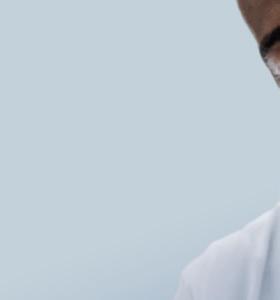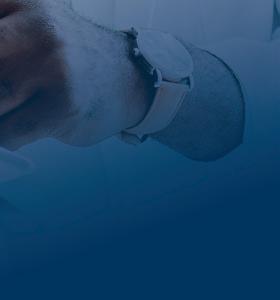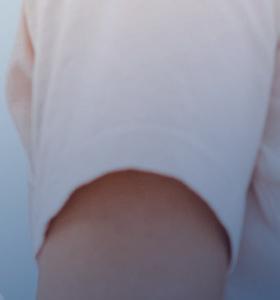


Park University International Center for Music and NAVO Arts Presents
C. Stephen Metzler Hall at The Folly Theater BEHZOD ABDURAIMOV,
Friday, September 20, 2024 • 7:30 p.m.







Park University International Center for Music and NAVO Arts Presents
C. Stephen Metzler Hall at The Folly Theater BEHZOD ABDURAIMOV,
Friday, September 20, 2024 • 7:30 p.m.





Dear Esteemed Patrons and Lovers of Music,
As we embark on a new season at the International Center for Music at Park University, I find myself reflecting on the profound impact that music has on our lives. It’s not just the sound that resonates, but the emotion and dedication behind every performance that truly moves us. As Artistic Director and founder of this institution, I am continuously inspired by the exceptional talents of our students, faculty, and guest artists who pour their hearts into their craft. Kansas City is a remarkable place, home to a community that cherishes and supports the arts with unparalleled enthusiasm. Our concert series is designed to bring you closer to the magic of live music, offering an intimate and accessible way to experience the brilliance of our performers.
Our mission remains steadfast: to create an environment where musical excellence thrives, free from the distractions and financial burdens that often hinder artistic growth. At Park ICM, we are committed to nurturing the next generation of musicians with the same intensity and focus that shaped my own musical journey.
This season, we are proud to present a lineup that includes not only our extraordinary students and faculty but also internationally acclaimed guest artists whose contributions to the world of music are nothing short of legendary. In keeping with our mission, we will also introduce you to the newborn stars, the bright talents who represent the future of classical music. Each concert is an opportunity to witness the convergence of passion, discipline, and talent, creating moments that linger in the heart and mind.
I invite you to join us in celebrating the transformative power of music. Your presence and support are invaluable to us, fueling our drive to reach new heights of artistic achievement. Together, let’s create a symphony of shared experiences that transcends time and space.
With deep gratitude,


Stanislav Ioudenitch Founder and Artistic Director International Center for Music at Park University
P.S. Each performance is a manifestation of our shared love for music. Your presence and applause amplify our drive to elevate the art form further.
Behzod Abduraimov, Piano, Shah Sadikov, Conductor
With the Park ICM Orchestra and the NAVO Chamber Orchestra
GENIUS LOCI - SPIRIT OF PLACE (2009/24*)
(WORLD PREMIERE OF THE REVISED VERSION) ........................................................................
Ingrid Stölzel (1971)
SYMPHONY
...........................................................
Sergei Prokofiev (1891-1953)
I Allegro
II Larghetto
III Gavotte: Non troppo allegro
IV Finale: Molto Vivace
VARIATIONS ON A THEME BY HAYDN ‘SAINT ANTHONY VARIATIONS’
.............................................................
Johannes Brahms (1833-97)
Theme. Chorale St. Antoni. Andante
Variation I. Poco più animato (Andante con moto)
Variation II. Più vivace (Vivace)
Variation III. Con moto
Variation IV. Andante con moto (Andante)
Variation V. Vivace (Poco presto)
Variation VI. Vivace
Variation VII. Grazioso
Variation VIII. Presto non troppo (Poco presto) Finale. Andante
CONCERTO
................................................ Wolfgang Amadeus Mozart (1756-91)
I Allegro
II Romanze
III Rondo, Allegro Assai
Behzod Abduraimov, piano
* This revised 2024 version of Genius Loci - Spirit of Place was written for conductor Shah Sadikov
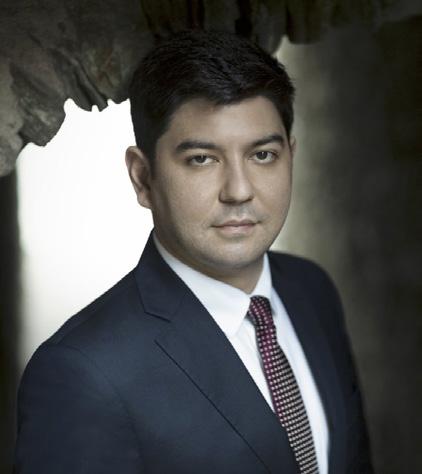
“Behzod Abduraimov has the magic touch” The Times
Behzod Abduraimov’s performances combine an immense depth of musicality with phenomenal technique and breath-taking delicacy. He performs with renowned orchestras worldwide including Philharmonia Orchestra, Los Angeles Philharmonic, Deutsches Symphonie-Orchester Berlin, San Francisco Symphony, The Cleveland Orchestra, Orchestre de Paris, Concertgebouworkest, Czech Philharmonic, Vienna Symphony Orchestra, NHK Symphony and Rundfunk-Sinfonieorchester Berlin (RSB) with prestigious conductors such as, Santtu-Matias Rouvali, Gustavo Dudamel, Semyon Bychkov, Gianandrea Noseda, Juraj Valčuha, Vasily Petrenko and Constantinos Carydis.
2023/24 performances include Chicago Symphony, Mozarteumorchester Salzburg, Houston Symphony and Pittsburgh Symphony Orchestras, Oslo Philharmonic, Stavanger Symphony Orchestra including a tour of Spain and Belgian National Orchestra performing at the Concertgebouw, Amsterdam. Behzod will also appear with Adelaide Symphony Orchestra and Sydney Symphony Orchestra. Conductor collaborations include Osmo Vänskä, Juraj Valčuha, Constantinos Carydis, Robin Ticciati, Manfred Honeck, Yoel Levi, Han-Na Chang, Hannu Lintu and Andris Poga.
In recital Behzod has appeared a number of times at Carnegie Hall’s Stern Auditorium, Queen Elizabeth Hall in London and Amsterdam’s Concertgebouw, and has recently been presented by Alte Oper, Frankfurt, Toppan Hall, Tokyo, Teatro alla Scala and La Società dei Concerti di Milano. In 2023/24 Behzod will appear twice at Carnegie Hall – returning to the Stern Auditorium for solo recital, followed by a duo recital with Daniel Lozakovich at the Weill Auditorium. The duo will present recitals elsewhere in North America including Bing Hall, Stanford, and the Vancouver Recital series. Behzod will also perform in recital at the Seoul Arts Centre, Shanghai Concert Hall, Amare Hall, Hague and the Tuesday Evening Concert Series, Charlottesville. Regular festival appearances include Aspen, Verbier, Rheingau, La Roque Antheron, Lucerne and Ravello festivals.
Behzod’s second recording for Alpha Classics, featuring works by Ravel,
Prokofiev, and Uzbek composer Dilorom Saidaminova, was released on 12 January 2024. The album won the Gramophone Editor’s Choice award and was named one of the Apple Music ‘10 Classical Albums You Must Hear This Month’ of February 2024. 2021 saw the highly successful release of his first recital album for Alpha Classics based on a programme of Miniatures including Mussorgsky’s Pictures at an Exhibition. In 2020 recordings included Rachmaninov’s Rhapsody on a Theme of Paganini with Lucerne Symphony Orchestra under James Gaffigan, recorded on Rachmaninov’s own piano from Villa Senar for Sony Classical and Rachmaninov’s Piano Concerto No.3 with Concertgebouworkest, for the RCO live label. Both recordings were nominated for the 2020 Opus Klassik awards in multiple categories. A DVD of his BBC Proms debut in 2016 with Münchner Philharmoniker was released in 2018. His 2012 debut CD of Liszt, Saint-Saëns and Prokofiev for Decca won the Choc de Classica and Diapason Découverte, and his first concerto disc for the label featured Prokofiev’s Piano Concerto No.3 and Tchaikovsky’s Concerto No.1.
Born in Tashkent, Uzbekistan, in 1990, Behzod began the piano aged five as a pupil of Tamara Popovich at Uspensky State Central Lyceum in Tashkent. In 2009, he won first prize at the London International Piano Competition with Prokofiev’s Piano Concerto No.3. He studied with Stanislav Ioudenitch at the International Center for Music at Park University, Missouri, where he is Artist-in-Residence.
An adamant believer in the power of music to unite, inspire, and elevate, Shokhrukh (Shah) Sadikov is one of the most driven young conductors of his generation. From concert halls to classrooms, community centres and libraries, Sadikov leads an engaged career as a conductor, violist, researcher, and music educator. His work with numerous organizations, hundreds of people, and advocacy of access to the arts-for-all stands as a testimony to his belief.
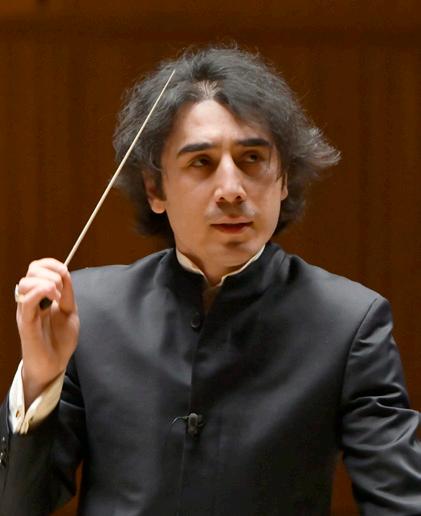
In 2015, Mr. Sadikov co-founded and became the CEO and Music Director of a non-for-profit arts organization, NAVO Inc. (navoarts.com), whose mission is to create unique programs that challenge, entertain, and enrich the lives of underserved communities in the Midwest of the United States. In its only few years of existence, NAVO has already reached audiences in the states of Kansas, Missouri, Nebraska, and Illinois. During the 2018-19 season he also led the Overland Park Orchestra as the Music Director.
During his tenure as Music Director of the Hays Symphony Orchestra (2015-2019), the orchestra has reached its first pedestal of success in every direction: innovative programming that appeals to a wide range of audience (including two festivals: Cottonwood Chamber Music in the Spring and New Music in the Fall), high quality concerts with a strong regular following, the first HSO brand, website, and the Hays Youth Orchestra. The Children’s Halloween concert became one of the most successful family events of the city. Mr. Sadikov also worked as an assistant professor of upper strings and orchestra director at Fort Hays State University.
Sadikov appeared as a conductor, soloist, and principal violist with the National Symphony Orchestra and the National Radio Chamber Orchestra of Uzbekistan. He also conducted ensembles such as the National Symphony Orchestra in DC, Baltimore Symphony, Hamburg Symphony, Tokyo Philharmonic, Aspen Festival Orchestra, Aspen Chamber Symphony, Berlin Sinfonietta, Kazakh State Philharmonic, Kansas City Civic Orchestra, Kansas Wesleyan Chamber Orchestra, Medomak Symphony Orchestra, Taldykorgan Philharmonic, Chamber Orchestra “Turkiston” and newEar Contemporary Ensemble among others.
In the theater, Sadikov has conducted the productions of Handel’s Giulio Cesare in Egitto, Mozart Die Zauberflöte, Tchaikovsky’s The Nutcracker and has been engaged with the productions of Puccini La bohème and Gianni Schicchi, Tchaikovsky Eugene Onegin, Strauss II Die Fledermaus, Britten The Rape of Lucretia, Mechem Tartuffe, as an assistant conductor and violist.
As violist, Mr. Sadikov performed in festivals that include Aspen, Sarasota, Halcyon, Killington, Cottonwood, Lincoln Crossroads and Vladimir Spivakov’s “Moscow Meets Friends”. He produced two recordings with he rapper Tech 9 under the Strange Music label, and released two CD’s of viola works by Brahms, Schumann, Clarke, and Ingrid Stölzel. He recently performed recitals in Germany, Uzbekistan, and the United States, and played his Carnegie Hall debut in 2014.
As a founding member of Wakarusa Trio, Mr. Sadikov is a first prize winner of the Coleman Chamber Music Competition, American Protégé International Competition and MTNA Competition, as well as a Bronze medalist at the Chamber Music Foundation Competition of New England. As a soloist and conductor, he is a laureate of several international competitions such as the 2005 Young Artist Competition of the Republic (Uzbekistan), the 2006 International Competition in Almaty (Kazakhstan) as well as the Tolebaev Conducting Competition (Kazakhstan) in 2019.
His educational journey took him from the State Conservatory of Uzbekistan to Park University International Center for Music, where he earned a
Bachelor’s Degree in Music under the tutelage of Ben Sayevich and Daniel Veis. Shah continued his academic pursuits at the University of Kansas, securing a Master’s Degree in music with Professor Peter Chun while simultaneously working as a Teaching Assistant in viola. He further honed his skills in Germany, attaining a prestigious Kontakstudium Certificate from Detmold Hochschule für Music under Diemut Poppen’s mentorship. During his time in Kansas, David Neely became Shah’s first conducting mentor, affording him invaluable podium experience.
His academic journey then led him to the Johns Hopkins University Peabody Institute, where he is currently pursuing a Doctor of Musical Arts degree in orchestral conducting under the guidance of renowned figures like Marin Alsop and Joseph Young, while concurrently studying for a Master of Musicology degree with Laura Vasilyeva. In a parallel pursuit, Shah has ventured into Computer Science, working toward a Bachelor of Science degree, and holds certificates in Python and JavaScript from esteemed programs. Additionally, he has benefited from mentorship and master classes with prominent figures in conducting and viola, including Robert Spano, Mei-Ann Chen, Michael Stern, Ludovic Morlot, Bernard Labadie, Patrick Summers, Larry Rachleff, Kenneth Kiesler, Cliff Colnot, Donald Schleicher, Kim Kashkashian, Paul Neubauer, and Paul Coletti, all of which have contributed to his multifaceted journey of achievement.

Originally from Reading, Mass., Steven McDonald, director of orchestral activities, has served on the faculties of the University of Kansas, Boston University and Gordon College. While in Boston, he conducted a number of ensembles, including Musica Modus Vivendi, the student early music group at Harvard University. McDonald also directed ensembles at the Massachusetts Institute of Technology, serving as founder and music director of the Summer Opera and Independent Activities Period Orchestra, and conductor of the MIT Chamber Orchestra and the Gilbert and Sullivan Players. At the University of Kansas, McDonald served as assistant conductor of the KU Symphony, and was the founder and music director of the Camerata Ensemble of non-music majors, and of the chamber orchestra “Sine Nomine,” a select ensemble of performance majors. Additionally, he has conducted performances of the KU Opera. He has also served as vocal coach at the Boston University Opera Institute and at Gordon College.
McDonald served as music director of the Lawrence (Kan.) Chamber Orchestra from 2007-14, during which time the group transformed into a professional ensemble whose repertoire featured inventive theme programs and multimedia performances. In 2009, he was selected to conduct the Missouri All-State High School Orchestra, and in 2011 was the first conductor selected as guest clinician at the Noel Pointer Foundation School of Music which serves inner-city students in Brooklyn, N.Y. An avid proponent of early music, McDonald has also taught Baroque performance practice at the Ottawa Suzuki Strings Institute summer music program, and regularly incorporates historically informed practice into his performances.
McDonald is a graduate of the Boston University School for the Arts, the Sweelinck Conservatory of Amsterdam (The Netherlands) and the University of Kansas School of Fine Arts.
The ICM Orchestra was founded in 2016, with the appointment of Steven McDonald as Music Director. The orchestra’s repertoire consists of works that are central to any professional orchestra, as well as compositions that cover a broader span of composers from many periods of music history. ICM students are given the opportunity to perform solo works with the orchestra, and the continuous engagement of guest conductors provides the students with skills that they will need when eventually gaining membership in professional orchestras.
NAVO is comprised of internationally recognized artists who have made their home in Kansas and share their talent to create unique programs that challenge, entertain, and enrich the lives of communities in the Midwest.
Flute
Daniel Velasco, principal
Christina Webster
Piccolo
Andy Fukasawa
Oboe
Margaret Marco, principal
Luis dé Leon
Clarinet
Jane Carl, principal
Nuvee Thammikasakul
Bassoon
Austin Way, principal
Midori Samson
Contrabassoon
Logan Bach
Horn
Alberto Suarez, principal
Frank Carrubba
Trumpet
Steve Leisring, principal
Aaron Romm
Timpani/Percussion
Mark Lowry
Alexander Beel
Piano
Ellen Sommer
Violin I
Véronique Mathieu, concertmaster
Ilkhom Mukhiddinov, co-concertmaster
Aviv Daniel, assoc.
Vincent Cart-Sanders, assist.
Sun-Young Gemma Shin
Yuren Zhang
Elena Kolbrek
Alla Krolevich Wijnands
Heeyun Cho
Violin II
Destiny Mermagen, principal
Mumin Turgunov, co-principal
Ilvina Gabrielian assoc.
Yiyuan Zhang, assist.
Yin-Shiuan (Sasha) Ting
Soobeen Nam
Ben Lerman
Viola
Christine Grossman, principal
Christian Dos Santos co-principal
Nell French assoc.
Victor Diaz assist.
Ashley Stanfield
Iana Korzukina
Samin Golozar
Cello
Michael Mermagen, principal
James Farquhar, co-principal
Diyorbek Nortojiev, assoc.
Nikita Korzukhin, assist.
Abdumardon Abdurakmonov
Otabek Guchkulov
Jordan Proctor
Ainaz Jallipour
Bass Jihoon Baek, principal
Noah Sapp

Ingrid Stölzel occupies a unique place in today’s music. Since settling in the United States in 1991, the German-born composer has joined a group of pioneering women who have, in the past quarter-century, established a more prominent place for women in American music than ever before.
Stölzel’s own works are marked by naturally unfolding melodies, ingenious structural integrity, and lush additive textures that often evoke contemplation; they are built on tonal principles but sometimes embark on adventurous excursions not easily categorized. Her music has been praised as “richly introspective” (BBC Music Magazine), as “tender and beautiful” (American Record Guide), and for “evoking a sense of longing” (American Composers Forum).
Among her works are solo piano music; choral works a cappella or with piano; chamber music including compositions with solo voice (such as the critically acclaimed The Gorgeous Nothings); and works for orchestra and/or band. The latter includes Into the Blue (2003), Pantha Rhei (wind ensemble, 2010), Soul Journey: Three Whitman Songs (2016), City Beautiful (2019), and Musica Ignota (2023).
Stölzel has garnered commissions and performances from ensembles such as Left Coast Chamber Ensemble, Volti San Francisco, Boston New Music Initiative, and New Morse Code, and from musicians such as Eunmi Ko, Yi-Yang Chen, and Stanislav Ioudenitch. Her music has been performed in major venues (Carnegie Hall, Kennedy Center, Seoul Arts Center) and significant festivals at home and abroad. She has received support from New Music USA, National Endowment for the Arts, the Mid-America Arts Alliance, and Meet the Composer.
She earned a master’s degree in composition from the Hartt School of Music in Connecticut and a doctor of musical arts in composition from the UMKC Conservatory. She served as director of Park University’s International Center for Music before assuming her present post as associate professor of composition at the University of Kansas.
Stölzel has written the following about the work on tonight’s program:
Genius Loci, from the Latin “spirit of place,” refers to the unique atmosphere of a place. Composers, writers and artists throughout history have been inspired by place. Their works are not about the representation of a place but rather the distinctive residue that inspires expression. It is in this sense that Genius Loci –Spirit of Place is my own exploration of the meaning of “place.”
The spirit of place is, in itself, organic to music. As a time-based art, it is the essence, the residue, of the opening that emanates throughout a composition as “place,” as a marker, if you will, for the composer and listener alike. When we talk about music, this place is often referred to as home, sense of place. We talk about the home key, for example, and the journey away from that place and an eventual return home.
Similarly, Genius Loci — Spirit of Place, emanates from its opening gesture. What follows grows organically out of the spirit of that place and informs the remainder of the work. Throughout the piece, the properties of “place” are transformed, developed, internalized, and re-examined. The underlying current that flows throughout the entire composition, however, is the spirit of place.
“Classical” Symphony No. 1 in D major, Op. 25
We sometimes forget how young our great composers were when they began tossing off works of sheer genius. Prokofiev exploded onto the scene in his 20s with a half-dozen operas including The Gambler and The Love for Three Oranges; the first three piano concertos and the Violin Concerto No. 1; the Scythian Suite; and major works for piano including the first four sonatas. These were works of astonishing originality — tangible masterpieces that were already pushing boundaries.
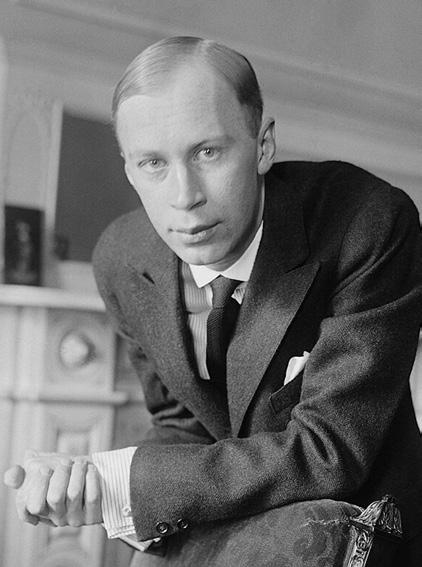
When it came time to compose a symphony, Prokofiev seemed duly humbled by the notion that he was following in the footsteps of Beethoven (who composed dozens of smaller-scale works before attempting a symphony) or Brahms (who lingered for 14 years on his First) or Mahler (who had in recent years transformed the very concept of what a symphony could be).
The 25-year-old Prokofiev came up with a solution that circumvented the pressure of a “Symphony No. 1” altogether: He would write a work “in the style
of” the Classic-period composers who had lain the foundation for the genre. The work he produced is not a quirky, sardonic “reimagining” of Haydn or Mozart, nor is it “Bach on the wrong notes,” as Prokofiev would later call Stravinsky’s approach to neoclassicism. The “Classical” is a true Prokofiev symphony, one that contains all of that composer’s freshness of textural, harmonic, and melodic design while poking at tradition with earnest but good-natured wit.
The composer would later write that “if Haydn had lived in our day, he would have retained his own compositional style while absorbing something of the new. This was the kind of symphony that I wanted to write.”
The “Classical,” completed in summer 1917 at a spa near St. Petersburg, would become one of the composer’s most accessible, if perhaps least typical, early works. It was atypical, too, in that it was the first work that Prokofiev — who was a notable also a virtuoso pianist — composed away from the keyboard. “I had been toying with the idea of writing a whole symphony without using the piano,” he wrote. “I thought that the orchestra would sound more natural.”
The symphony received its premiere on April 1918 in St. Petersburg, under the composer’s baton. Soon after, Prokofiev left revolution-torn Russia for a 15-year period of self-imposed exile in France and the United States.
The Symphony is scored for a spare orchestra: pairs of flutes, oboes, clarinets, bassoons, trumpets, and horns, plus timpani and strings. The opening Allegro, a perfectly crafted sonata-form movement, is balanced by the closing Molto vivace, the dashing finale with parallel features of sonata. Between these outer movements are two dances: The Larghetto is a polonaise, and in the third movement the minuet typical of the Classic symphony has been replaced with a Baroque gavotte (Non troppo allegro).

Brahms’s delight in the music of Haydn dates at least as far back as the 1850s, when he wrote to Clara Schumann that he and violinist Joseph Joachim were reading through the composer’s piano trios (sans cello): “We are enjoying ourselves immensely!” Later Brahms’s friend Carl Pohl introduced him to the works of the great Viennese master, including a Divertimento that was at that time attributed to Haydn, and which contained a traditional tune known as “St. Anthony’s Chorale.”
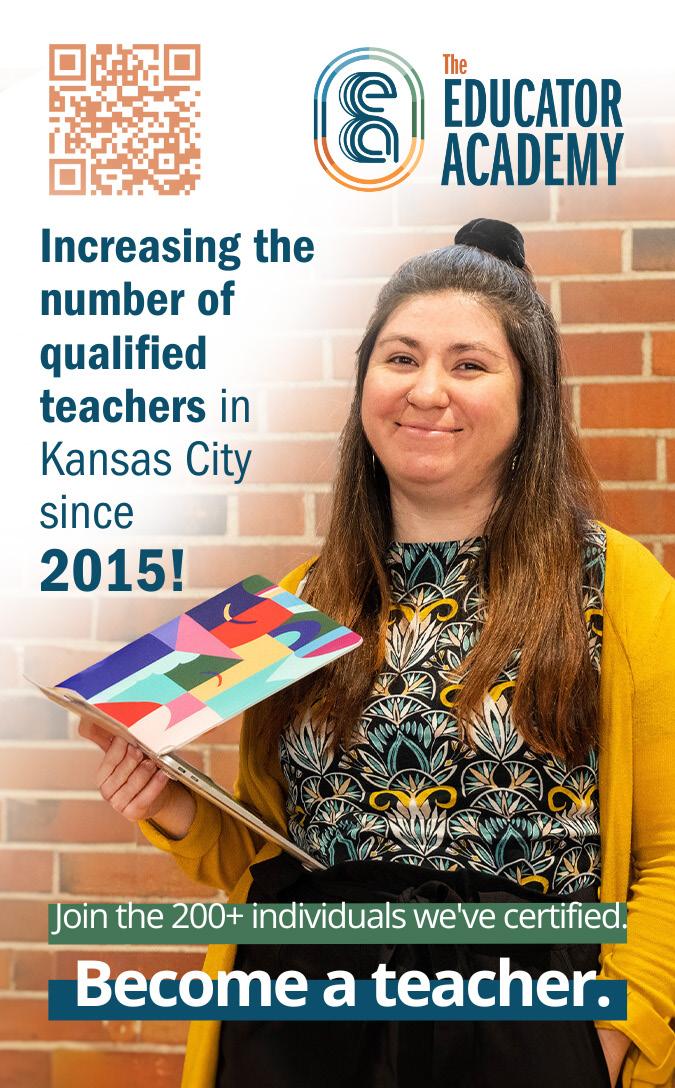

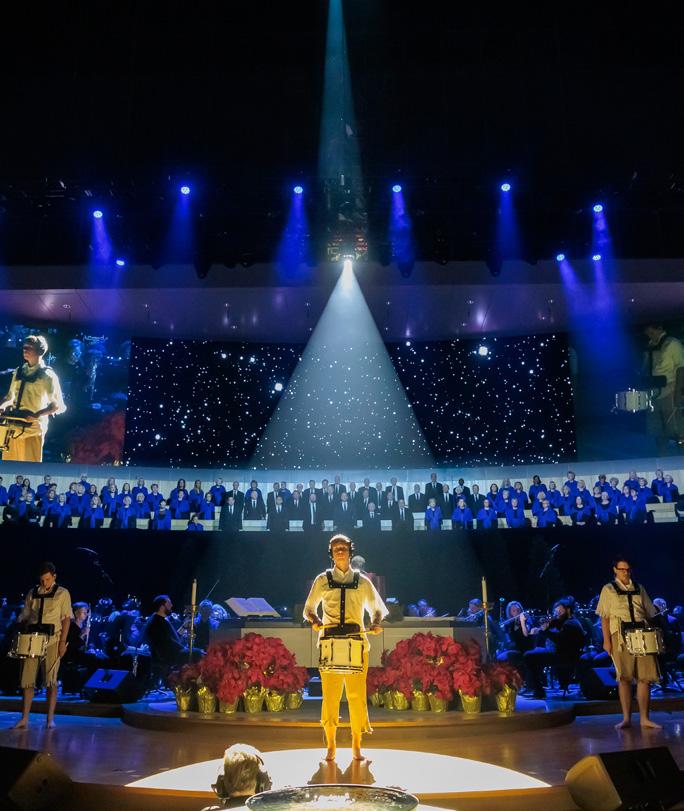
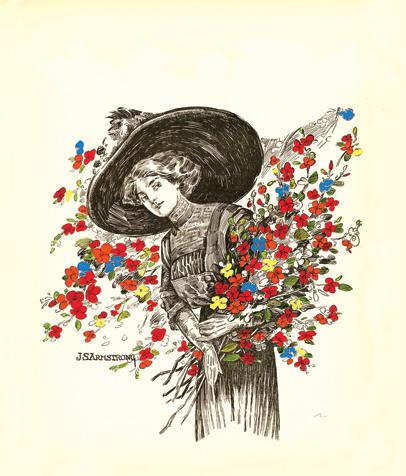

The piece caught the composer’s imagination, and in 1873 Brahms decided to use this melody for one of his most concise and enduringly popular symphonic works. The “Haydn” Variations were first performed in Vienna that year, under Brahms’s own baton.
This was one of the composer’s first major works for orchestra, and he always looked back upon it with fondness. Indeed, his lifelong devotion to music of earlier composers would continue throughout his life and would include serious study of the music Bach, Handel, and a number of Renaissance composers.
Alas, the work that Brahms intended as a pointed homage to Haydn was derived from a piece that, as it turns out, was probably not by Haydn at all. Years after Brahms’ death, scholars began to call into question the authenticity of the Divertimento in B-flat (Hob. II/46) that Brahms used as a source.
This chamber work for winds is now thought to be by one of Haydn’s Austrian contemporaries, possibly Ignaz Pleyel. In any event, the actual chorale is not by Pleyel but is a traditional tune — which has led some sources to refer to Brahms’ work as the St. Anthony Variations.
After a simple introduction of the theme, tension increases through the first five variations, culminating in the rushing vivace of Variation VI in which winds and brass present a rapid, greatly compressed version of the chorale. Variation VII is a gentle siciliano that functions as a sort of “slow movement.” Throughout this and the last variation and coda, the magnificent chorale is heard clearly in the bass line, even when the melody is semi-submerged.
It is easy to see why the 19th century loved “minor-key” Mozart. Works such as the C-minor Piano Concerto, the G-minor Symphony, K. 550, the Don Giovanni Overture, and parts of the Requiem possess the pathos and drama that the Romantics craved — which permitted them to cast Mozart as a precursor to Beethoven and Brahms and beyond.
These works continue to occupy a special place for performers. “I know of no other composer
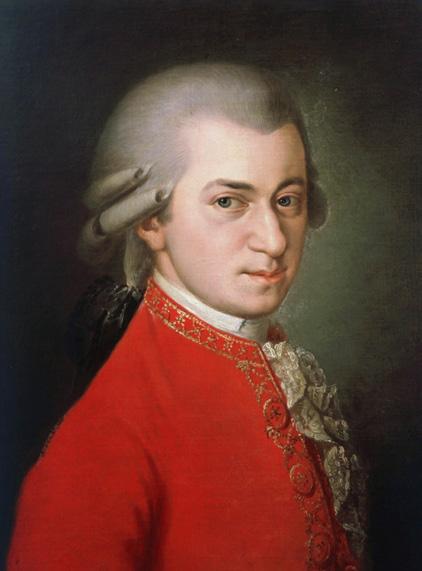
fundamentally transformed while writing in minor keys,” wrote the pianist Alfred Brendel. Today we also view Mozart from broader perspectives: not just as a proto-Romantic but as an Italianate melodist and as an out-of-step Classicist. Investigations into late-Baroque opera have uncovered purported sources for his bel canto style, and new attention to the works of J.C. Bach have revealed the extent to which Mozart drew upon the music of this youngest Bach son in developing his concerto style.
The opening of the D-minor Piano Concerto, K. 466, with its almost-imperceptible string syncopation, seems at first as if it could be a “rage” aria from an extravagant Baroque opera — until the soloist enters, coaxing out a stripped-down, almost naïve tune that reveals a world wholly different from that of the opening. Where the orchestra has sown torment and barely suppressed despair, the pianist reaps introspection and resignation.
It was completed on February 10, 1785, the first of six extraordinary concertos Mozart composed in 1785 and 1786, and received its premiere at one of Mozart’s Viennese subscription concerts — with the composer’s father in attendance. “We got in at one o’clock,” wrote Leopold to Nannerl upon arriving in Vienna on the day of the work’s completion. “The copyist was still copying the piece when we arrived, and your brother did not even have time to play through the Rondo, as he had to supervise the copying.”
Despite limited rehearsal, the concert was a success. “It was magnificent,” wrote Leopold, “and the orchestra played splendidly.” Doubtless he admired the same things that we do: the aching melodies and taut thematic development of the initial Allegro, the unusual slow movement (Romanze, in which a guilelessly lyrical tune alternates with a tempestuous central section), and the breathless, turbulent finale (Rondo: Allegro assai).
Not surprisingly, among the early admirers of the D-minor Concerto was Beethoven, who knew the piece intimately and performed it, probably using some versions of the peerless cadenzas he wrote for the first and last movements — which tonight’s soloist will perform.
— Paul Horsley
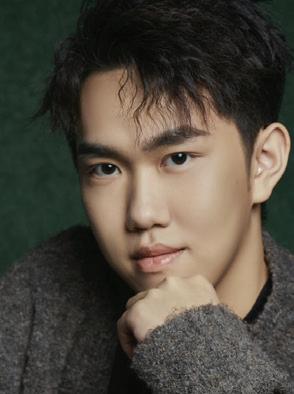

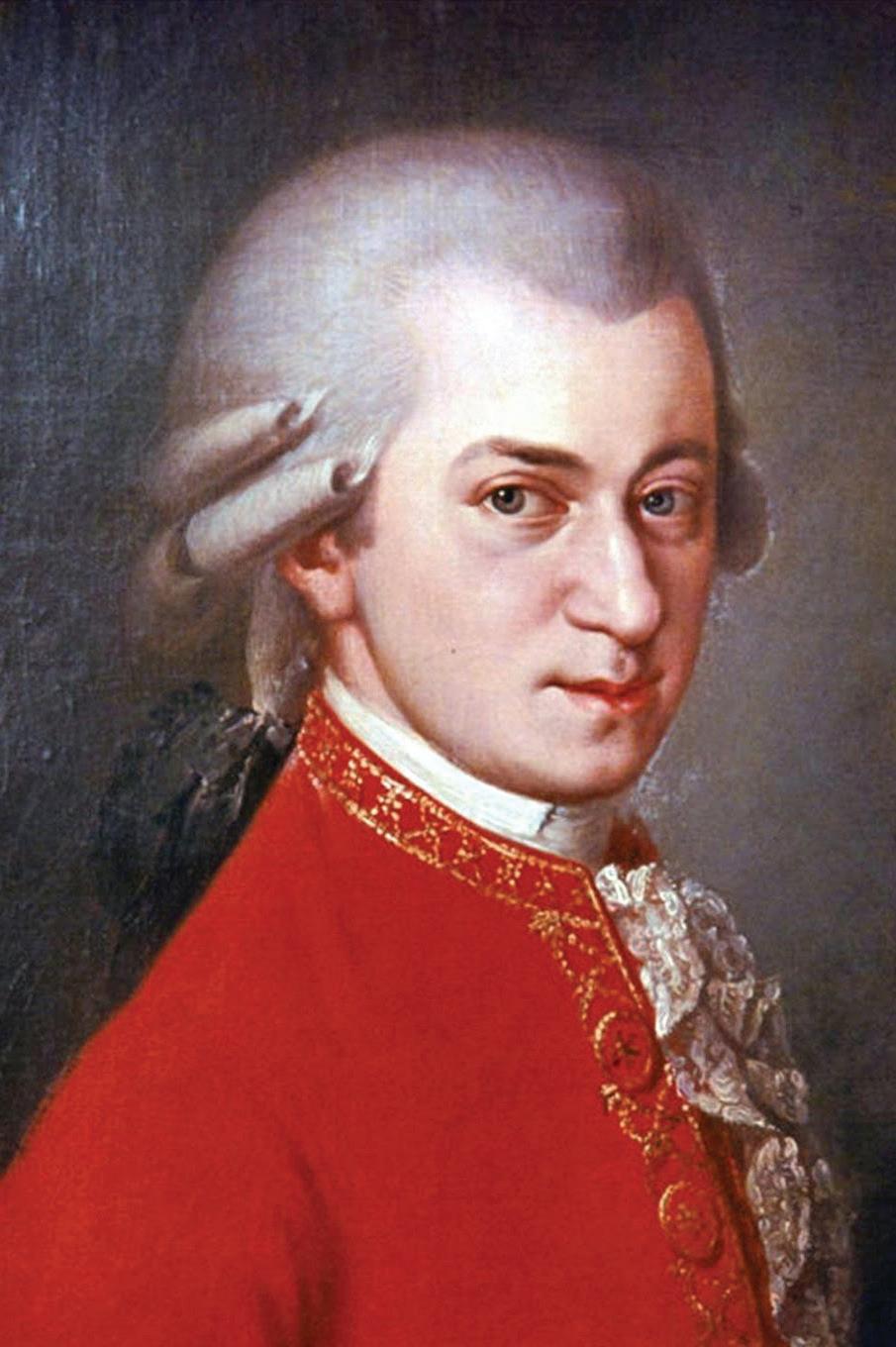
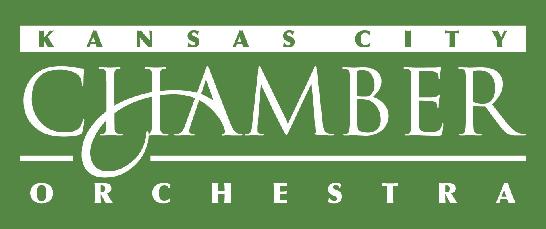
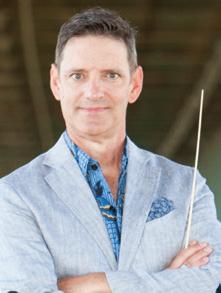
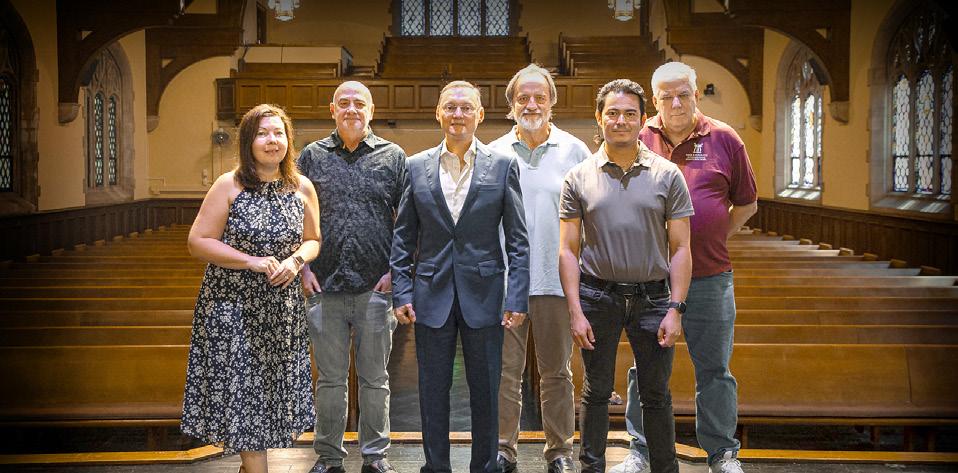
Stanislav Ioudenitch, Founder & Artistic Director, Piano Studio
Behzod Abduraimov, Artist-in-Residence
Gustavo Fernandez Agreda, ICM Coordinator
Peter Chun, Viola Studio
NAVO
Lolita Lisovskaya-Sayevich, Director of Collaborative Piano
Steven McDonald, Director of Orchestra
Ben Sayevich, Violin Studio
Daniel Veis, Cello Studio
Shah Sadikov, CEO and Music Director
Jim P. Zakoura, President of the Board
Ingrid Stölzel, Vice President
Véronique Mathieu, Artistic Director
Russ Mehl, Treasurer
Kate Marples, Outreach programs coordinator
Eldor Fazilov, Anissa Gardner
Walz, Sunnat Ibragimov Officers
Support the ICM, enjoy beautiful music and special events just for members.
Patrons Society members enjoy exclusive invitations to group events including meeting the talented ICM artists.

For more information on how to join our Patrons Society, scan the QR code with your mobile device camera.

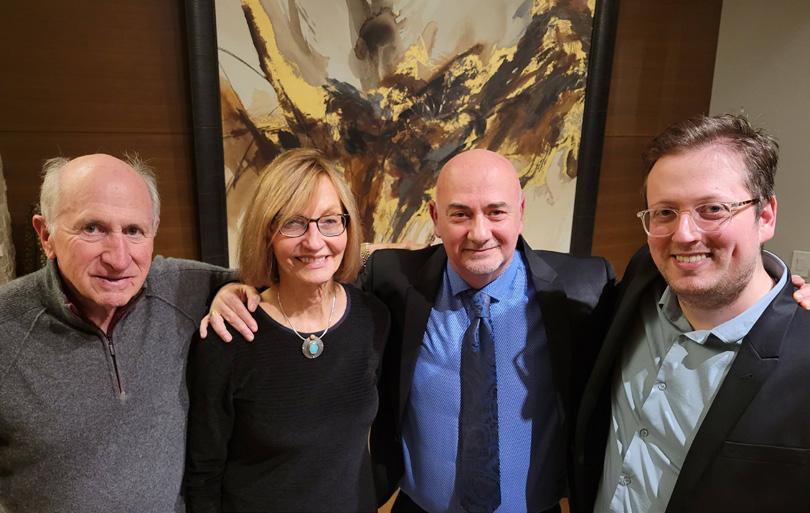
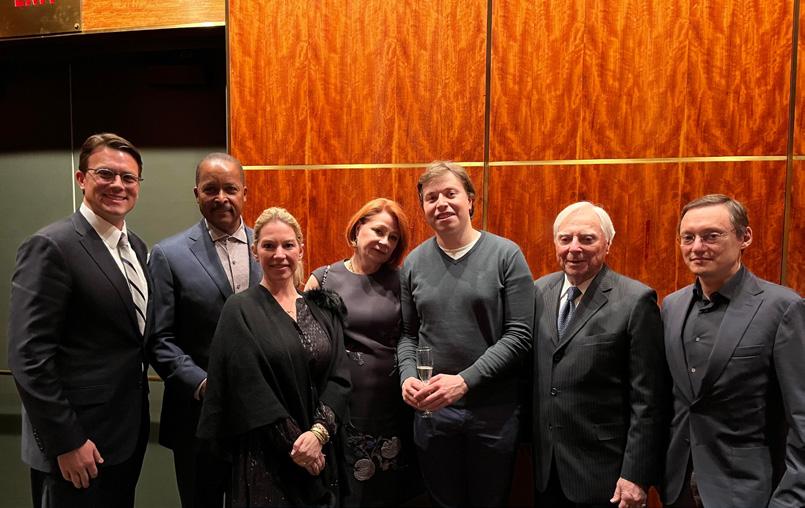
The Park University International Center for Music’s Patrons Society was founded to help students achieve their dreams of having distinguished professional careers on the concert stage.
Just as our faculty’s coaching is so fundamental to our students’ success, our Patrons’ backing provides direct support for our exceptionally talented students, concert season, outreach programs and our ability to impact the communities we serve through extraordinary musical performances.
We are continually grateful for each and every one of our Patrons Society members. For additional information, please visit ICM.PARK.EDU under “Support Us.”
We gratefully acknowledge these donors as of August 20, 2024
SUPERLATIVE
Brad and Marilyn Brewster *
Steven Karbank
Benny and Edith Lee
Ronald and Phyllis Nolan
John and Debbie Starr
Steven and Evelina Swartzman
Jerry White and Cyprienne Simchowitz *
SUPREME
Jeffrey Anthony
Brad and Theresa Freilich
Shirley and Barnett C. Helzberg Jr. *
Holly Nielsen
Steinway Piano Gallery of Kansas City
Gary and Lynette Wages*
Vince and Julie Clark
Stanley Fisher and Rita Zhorov
Susan Morgenthaler *
Kay Barnes and Thomas Van Dyke
Lisa Browar
Mark and Gaye Cohen
Suzanne Crandall
Charles and Patty Garney *
Doris Hamilton and Myron Sildon
Colleen and Ihab Hassan
Lisa Merrill Hickok
William and Regina Kort
Jackie and John Middelkamp
Kathleen Oldham
Kevin and Jeanette Prenger, ’09 / ECCO Select
James and Laurie Rote *
Stanley and Kathleen Shaffer
Guy Townsend
John and Angela Walker *
Nicole and Myron Wang
Phil and Barbara Wassmer *
* 2024-2025 Member

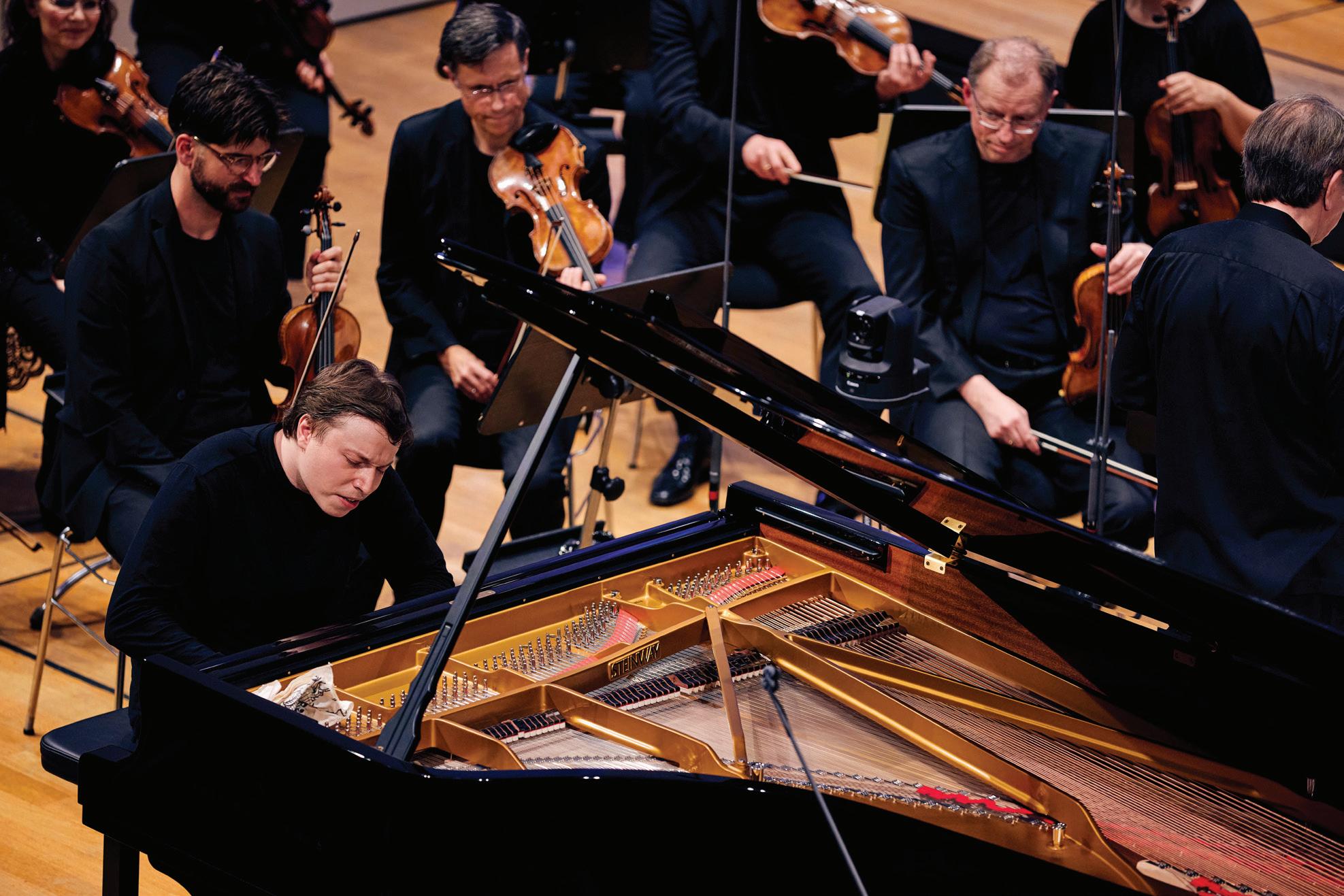
1900 Building, 1900 Shawnee Mission Parkway, Mission Woods, KS OCTOBER 5 , 7:3 0 P. M.
“Shmukler is a volcano”; “the name of Ilya Shmukler should be remembered” is how the Frankfurter Allgemeine Zeitung described this pianist after his triumph at the Concours Géza Anda 2024 in Zurich, Switzerland, where he won four major awards in addition to the First Prize. Join us for his first Kansas City performance since this significant competition win.
General Admission $30. Students $10 with I.D.

For tickets, scan here.
The Park University International Center for Music Foundation exists to secure philanthropic resources that will provide direct and substantial support to the educational and promotional initiatives of the International Center for Music at Park University. With unwavering commitment, the Foundation endeavors to enhance awareness and broaden audiences across local, national, and international spheres.
Vince Clark, Chair
Steve Karbank, Secretary
Marilyn Brewster
Lisa Browar
Stanley Fisher
Brad Freilich
Ron Nolan
Shane Smeed
Benny Lee, Treasurer
John Starr
Steve Swartzman
Guy Townsend
Angela Walker
Karen Yungmeyer
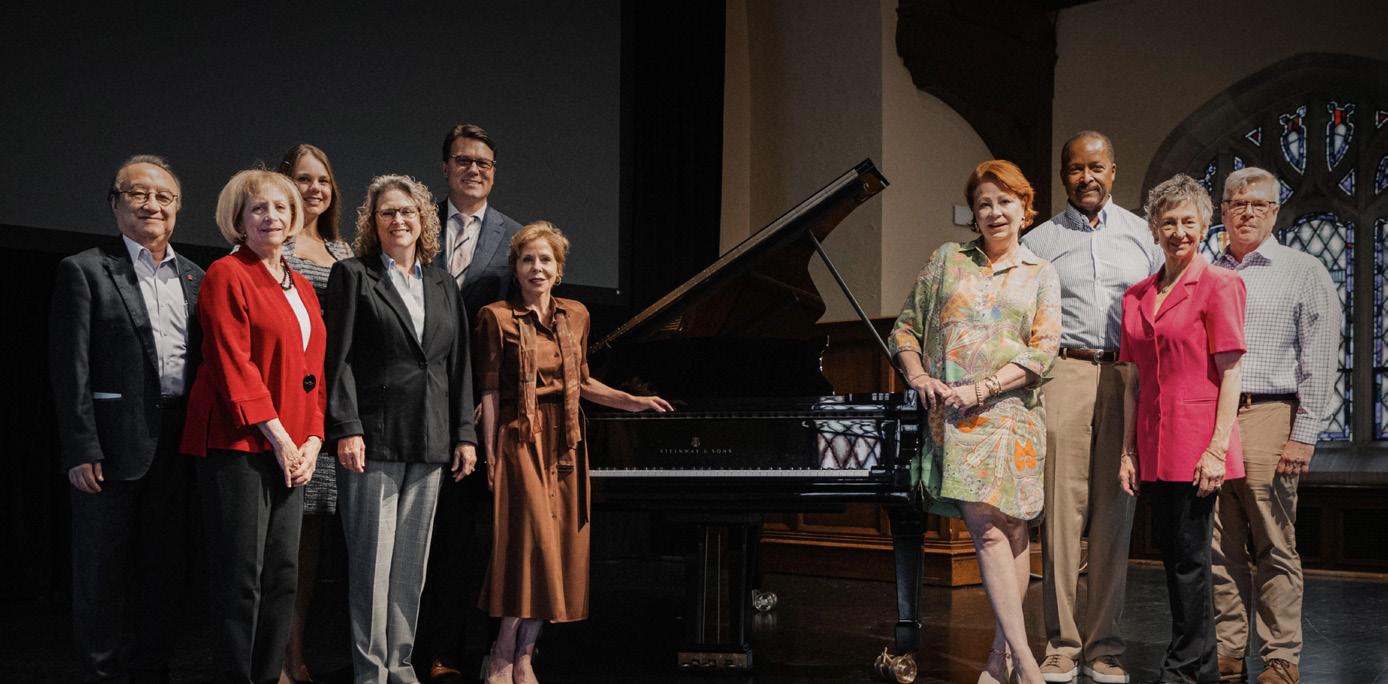

ANNIVERSARY SEASON 2024
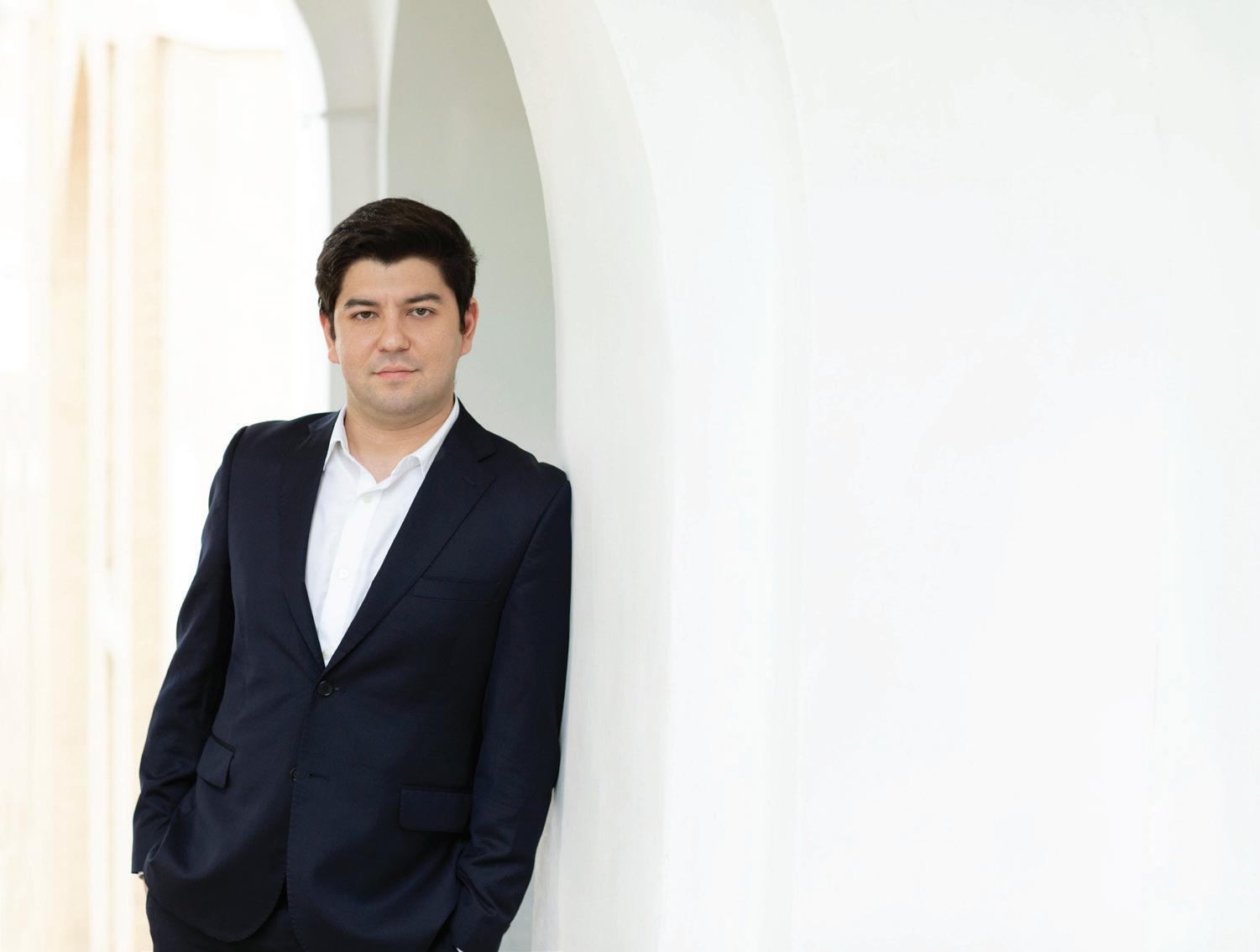
SEASON OPENER IN COLLABORATION WITH PARK UNIVERSITY ICM
Uzbek roots with pianist Behzod Abduraimov and conductor Shah Sadikov. Friday September 20, 2024 7:30pm. Folly Theater
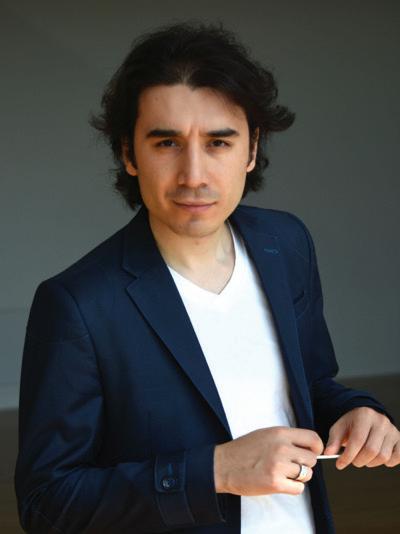
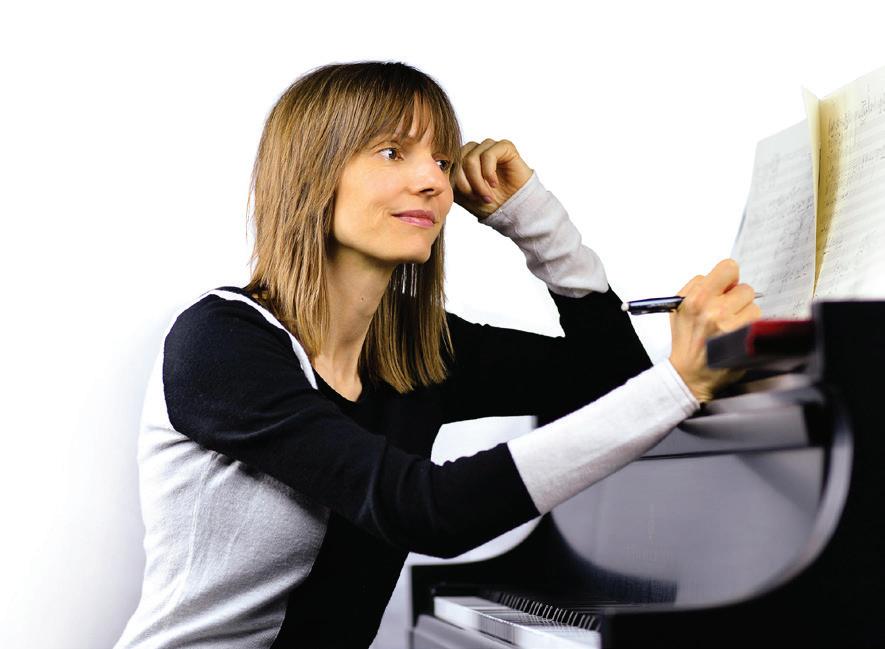
A MUSICAL
Celebrating Stölzel’s music with the world premiere of “Three Silent Things”. Saturday October 12, 2024 7:30pm. Atonement Lutheran Church ELCA
THANKSGIVING WITH NAVO!
Cellist Sunnat Ibragimov and friends in recital.
Saturday November 30, 2024 7:30pm.
Atonement Lutheran Church ELCA
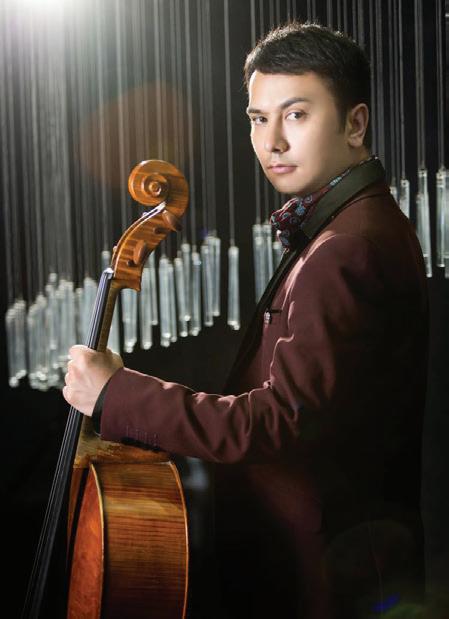


ANNIVERSARY SEASON 2025
Virtuoso works with orchestra featuring pianist Steven Spooner and violinist Véronique Mathieu. Saturday February 22, 2025 7:30pm.
Atonement Lutheran Church ELCA
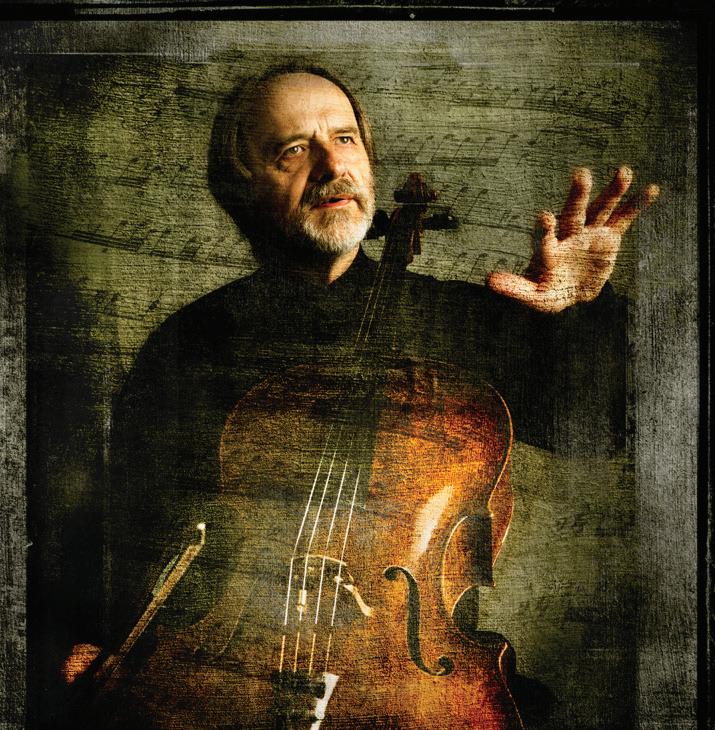
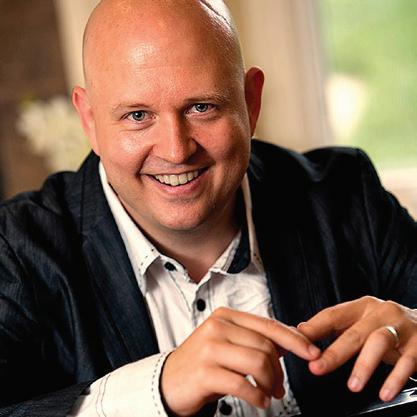
THE ART OF CELLO WITH DANIEL VEIS
Celebrating a life in music with competition winners who carry the legacy of Daniel Veis March 22, 2025 7:30pm. Atonement Lutheran Church ELCA
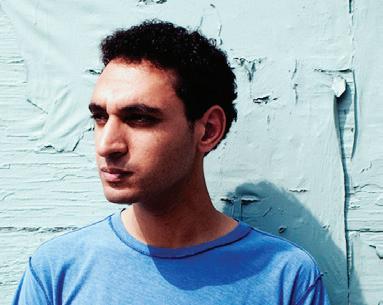
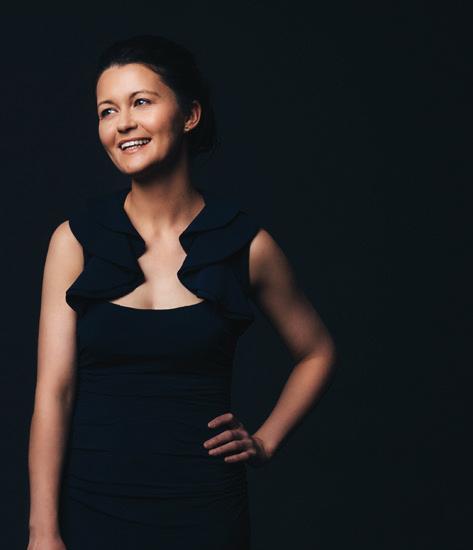

Regional premieres mark this unique chamber music collaboration APRIL 2025 MULTIPLE VENUES
Maria and Stanislav Ioudenitch in recital (presented in partnership with Park ICM) Wednesday May 7, 2025 7:30pm 1900 Building
An evening of chamber music with Beethoven, Alberga and Brahms. Friday May 9, 2025 7:30pm. 1900 Building
NAVO Chamber Orchestra presents Montgomery, Mozart, and Lena Frank. Sunday May 11, 2025 2pm. Folly Theater
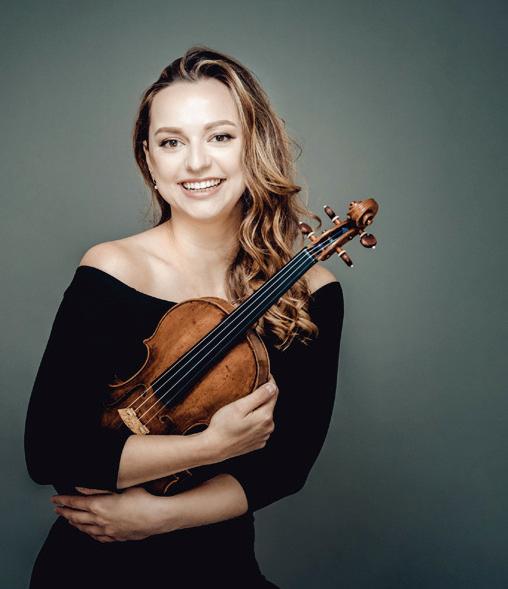

THANK YOU TO OUR GENEROUS SPONSORS!
VISIONARY CIRCLE
JIM P. ZAKOURA
REACH OUT KANSAS, INC.
PATRON OF THE ARTS
ANONYMOUS
CULTURAL CONNOISSEUR
MDIVANI CORPORATE IMMIGRATION LAW
ARTISTIC INNOVATOR
PIERRE WILKINSON
CREATIVE PARTNER
METZLER INITIATIVE GRANT
ARTS ENTHUSIAST
MARTHA LEE CAIN TRANBY MUSIC ENRICHMENT FUND
ARTISTIC SUPPORTERS
BARBARA CRAIG
ALICE PING YEE HO
ALEX SHAPIRO
Atonement Lutheran Church
FRIENDS OF NAVO
ELCA - Grace Covenant Presbyterian Church - Rick Deasley - Marples Violins - Cordelia Brown - Anissa Gardner Walz – Kat Maldonado - Russ Mehl - Dorothy Myrick - Rebecca Prater - Usha & Michael Rafferty - Lisa & Dave Rock - Azamat Saidov - Merc Coop - Starbucks
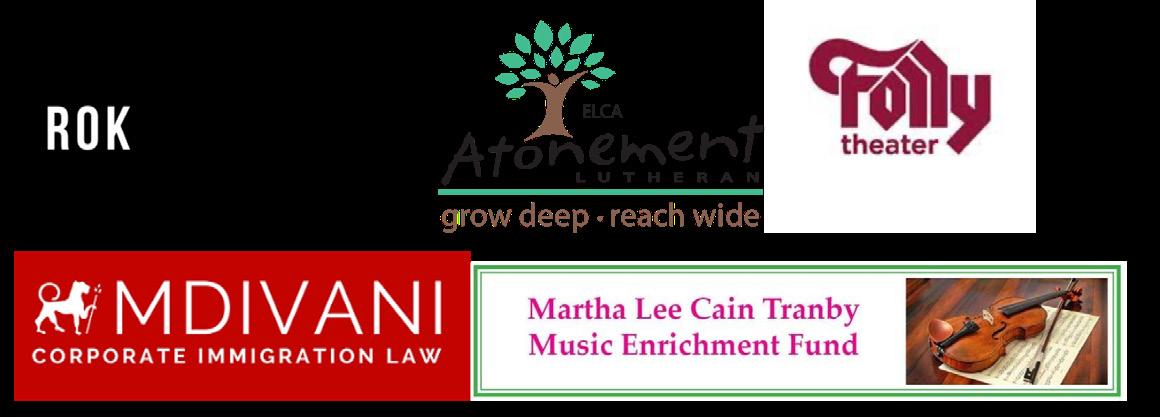

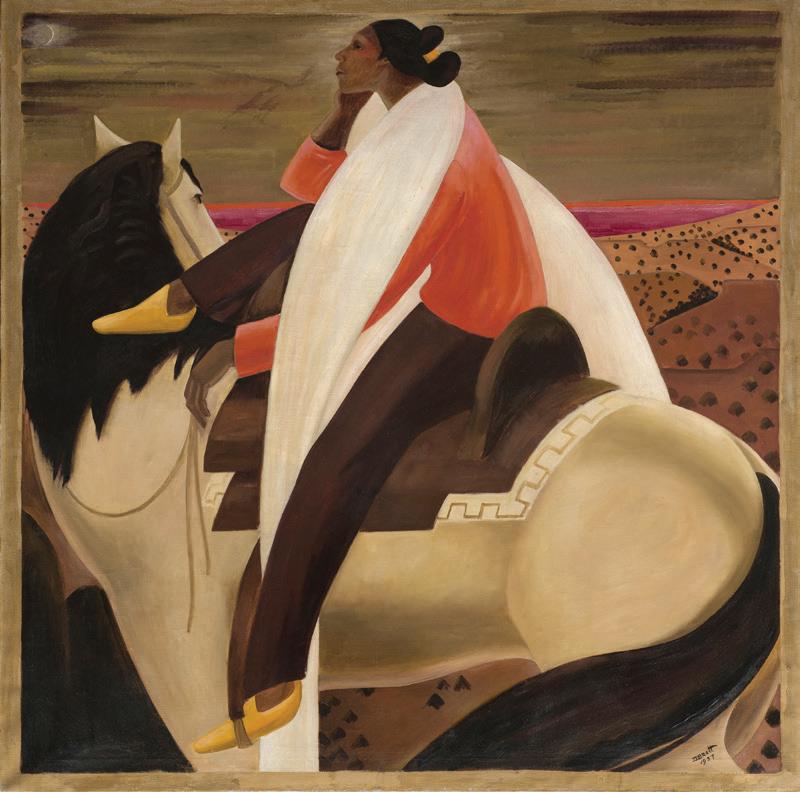


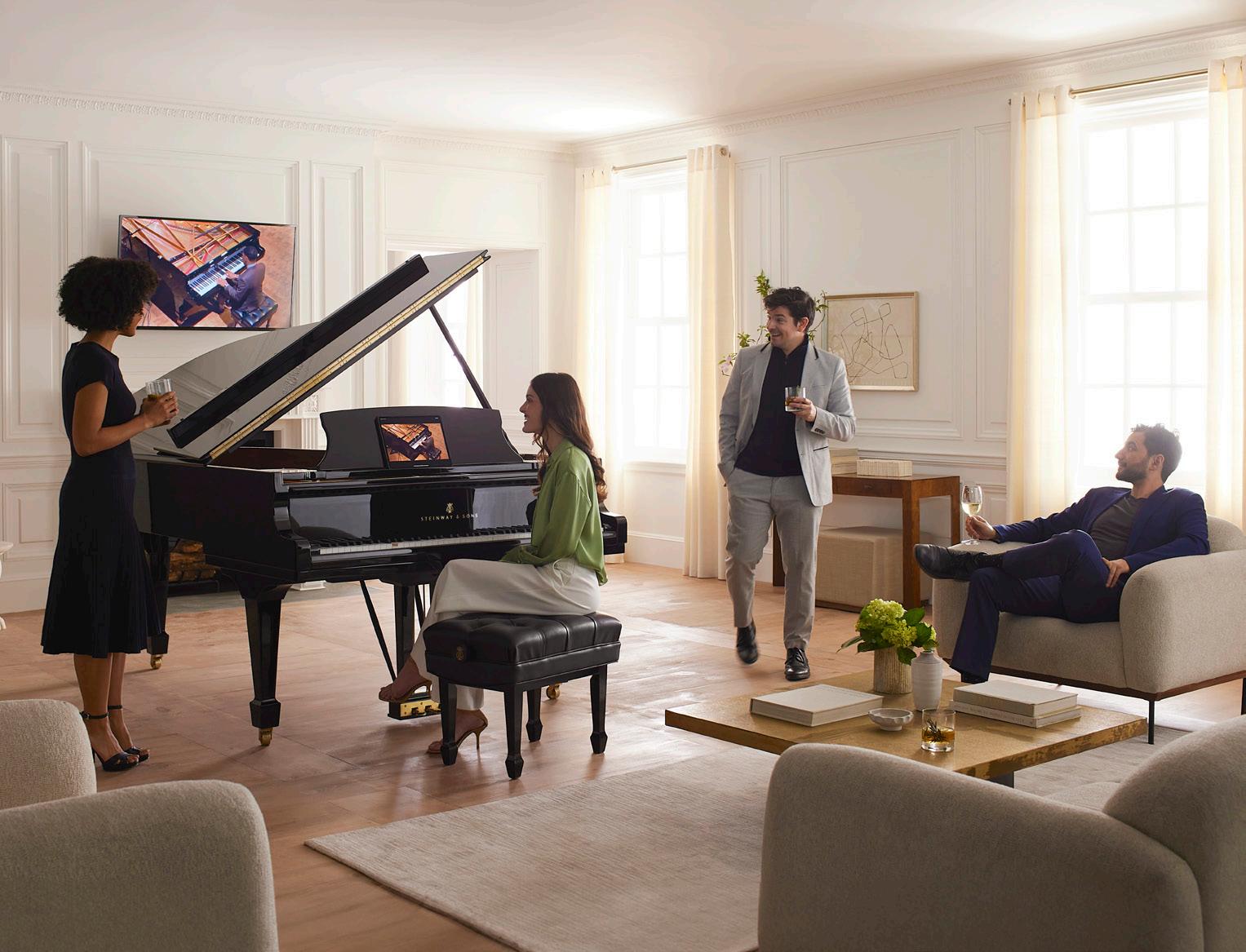
Imagine hearing — and seeing — every keystroke of a world-class piano performance in your own home. With spirio , you can enjoy music captured by renowned pianists, played with such nuance, power, and passion that it is utterly indistinguishable from a live performance.
Thousands of recordings by steinway artists are available at the touch of a button on the included iPad.
The library of music, videos, and playlists expands monthly and spans all genres. In addition to today’s greatest musicians, spirio delivers historic performances by steinway immortals , including Duke Ellington, Glenn Gould, Art Tatum, and many more.



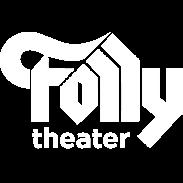
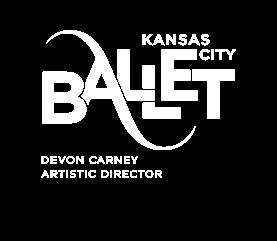

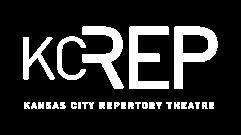
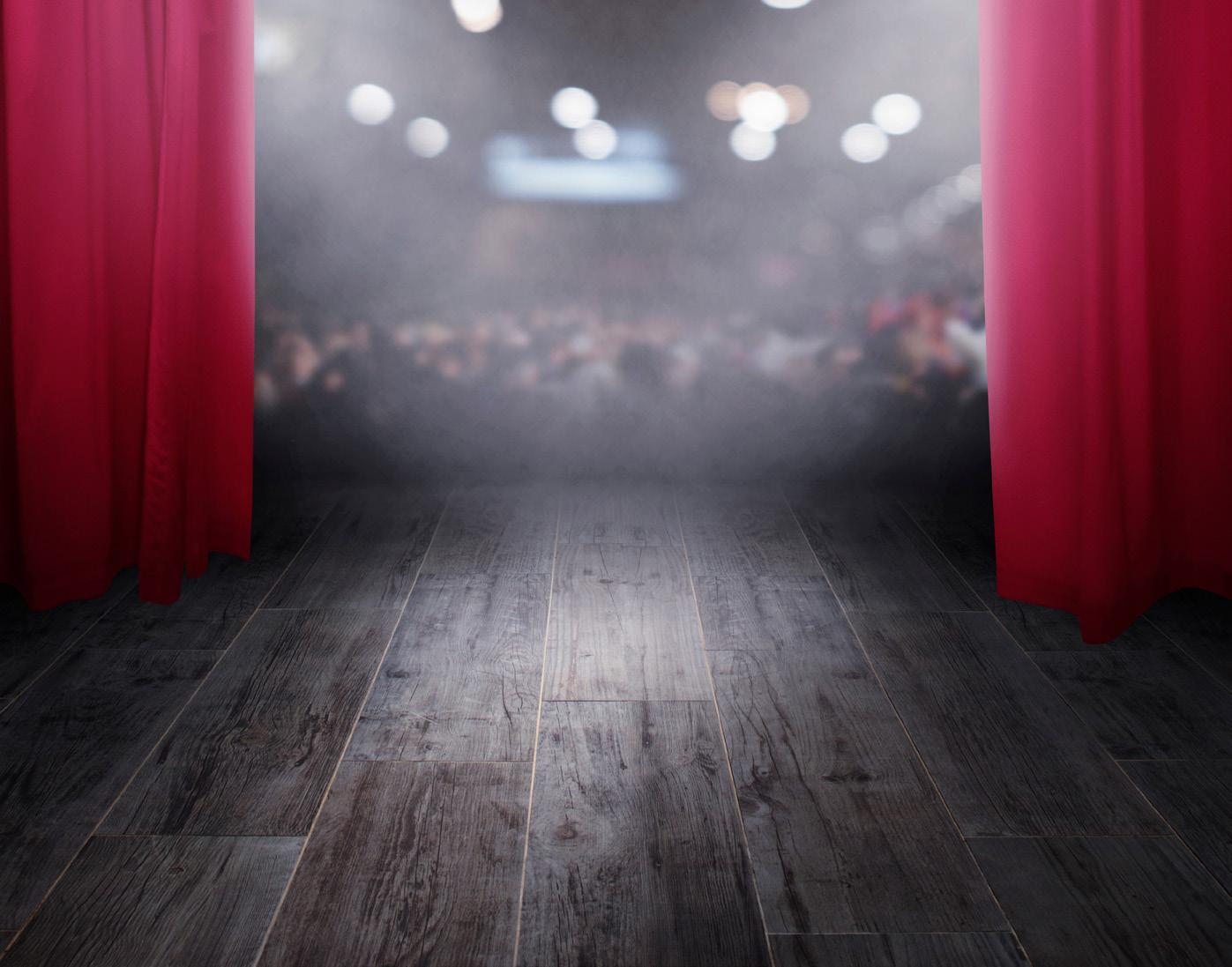



You deserve the best care in the region. We are proud to be consistently recognized as the best, year after year.
As the best hospital in Kansas and in Kansas City, we deliver unparalleled outcomes and world-class care.
We put you first because we genuinely care. Our dedication to our patients drives us to provide exceptional outcomes and the very best service – the kind of care that makes you feel seen, heard and valued.
We are trusted experts who believe you deserve unmatched care. With unmatched care comes unrivaled outcomes. Our relentless pursuit of excellence fuels us to make a lasting di erence for patients, their families and the entire region.
We are proud to still be the No.1 hospital in Kansas and in Kansas City. We are also the only hospital in the region to have any medical and surgical adult specialties that ranked among the top 50 nationwide, with 6 nationally ranked specialties.








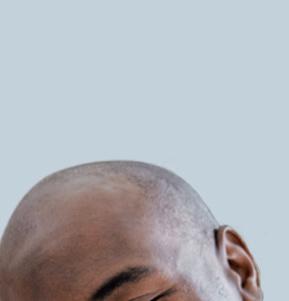

When you choose the best, you receive excellent care from a compassionate team of experts. Discover what sets the best care in the region apart. Schedule an appointment at 913-588-1227 or visit KansasHealthSystem.com/StillTheBest.



